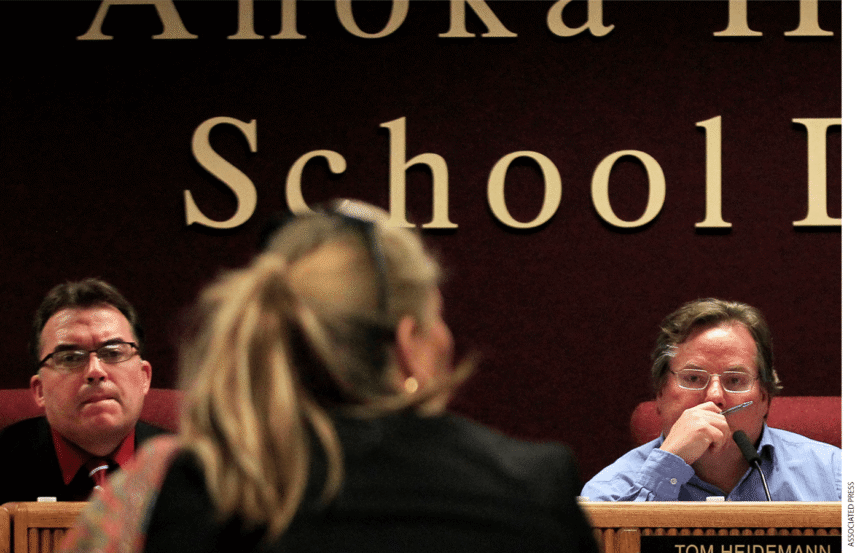This pair of thoughtful, earnest, well-researched books revisit the eternal issue of public-school governance along with the interminable debate over the virtues, failings, and seeming immortality of local school boards.
In brief: Ohio State political scientist Vladimir Kogan contends that local control of schools as it has evolved in the United States inevitably places adult interests ahead of student needs and thus subverts all serious efforts to boost achievement. Meanwhile, Scott R. Levy, a lecturer at the Harvard Graduate School of Education and a long-serving school board member, argues that elected local boards are not only the soundest means of governing public schools but also an antidote to polarization and fragmentation in these troubled times.
Kogan’s case for change plays a tune I’ve long hummed—and I believe that kids would fare better if America danced to it, though we often stumble when we try.
Way back in 1984—on the heels of A Nation at Risk—the late (and much missed) Denis Doyle and I wrote in The Public Interest:
Local school boards . . . have with rare (albeit welcome) exceptions not moved vigorously to diagnose the qualitative maladies of their schools or to prescribe remedies. And it is that neglect, compounded by the failure of the education profession to frame the right questions and suggest the best answers to the laymen on the school boards, that has prompted state officials to seize control of the process of educational reform.
Four decades later, that’s still true, though the unevenness of state-level responses to America’s education failings led Washington to assert greater control, as in No Child Left Behind (2002), Race to the Top (2009), and other federal initiatives. It’s the nation, after all, that’s at risk, not just Kentucky or Louisville.
Yet the currents of state and local control run deep in our K–12 waters, and it turns out that practically no one wants Washington to run—or even supervise—their schools. So Uncle Sam has done a lot of backpedaling.
Today the president and congressional majority seek (in the words of an executive order from Trump) to “return authority over education to the States and local communities.” They and many others also seek to empower parents to make key education decisions—including choice of schools—for their children. But one hears little, save from school board members themselves, about putting elected local boards more firmly in the driver’s seat. And forthcoming research from the Thomas B. Fordham Institute shows once again how distant remain the priorities of many board members from the achievement-boosting changes needed by their students and the nation.
Kogan shines laser-like attention on student achievement as the core work of schools and—channeling John Chubb and Terry Moe’s classic 1990 work, Politics, Markets, and America’s Schools—faults traditional governance by local boards on grounds that its political imperatives force it to pay greater attention to adult concerns and interests. It is indeed true that “kids don’t vote,” and elected officials nearly always cater to the grown-ups that do.







